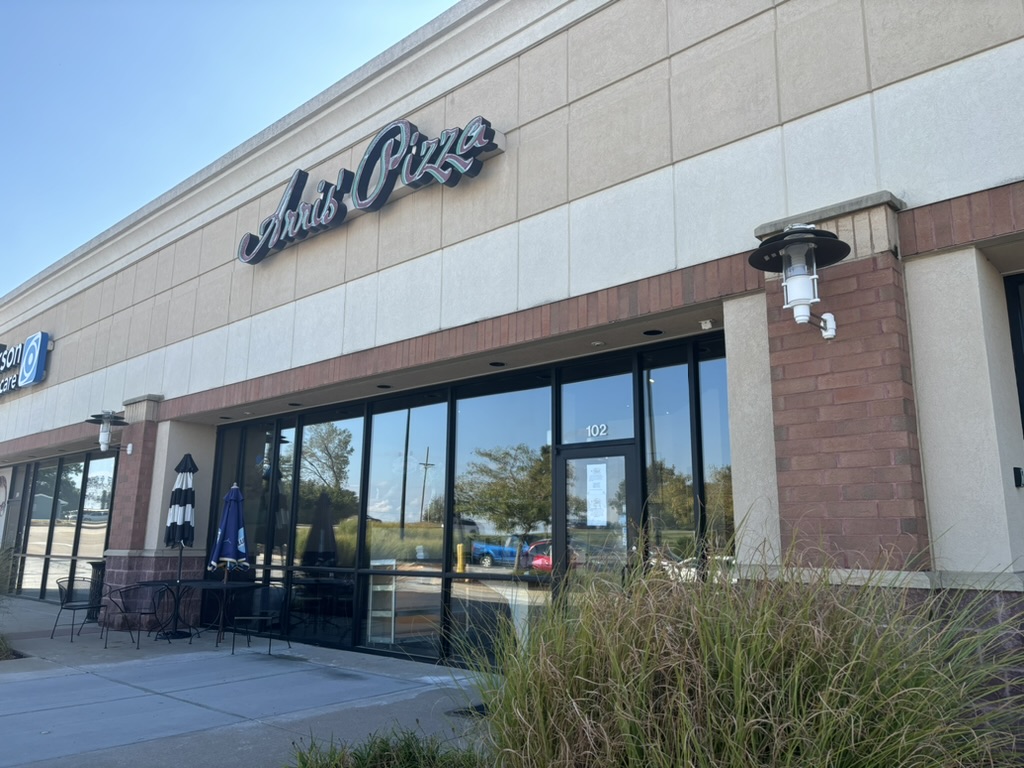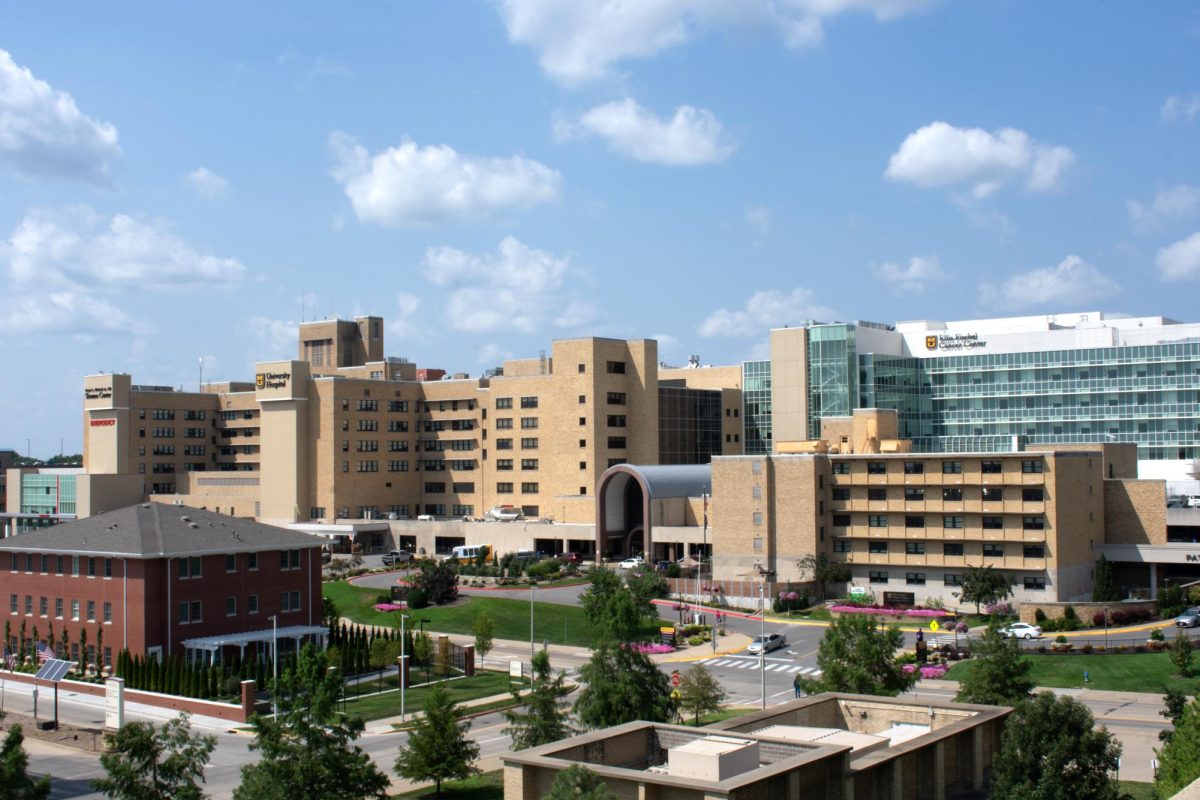MU recognized four individuals and an organization for making an “exemplary contribution” to campus diversity.
The Mizzou Inclusive Excellence Award applies to several areas of diversity, such as gender, racial-ethnic background, language, religious belief, sexual orientation, abilities and disabilities, national and geographical origin and economic strata, according to an [April 2 news release](http://munews.missouri.edu/news-releases/2015/0402-mu-recognizes-contributions-to-diversity-4/).
This year’s recipients of the award are: senior Olaitan Akintola, president of the Association of Black Psychologists; second-year medical student Kelsie Coe; Elisa Glick, an associate professor of English and women’s and gender studies; J. Nicholas Holladay, an academic adviser for the Division of Biological Sciences; and the MU Extension 4-H Latino Youth Futures.
####Senior Olaitan Akintola, president of the Association of Black Psychologists
Akintola was nominated for the award by her close friend Michaela Key, a junior studying psychology.
Akintola said Key’s nomination letter highlighted Akintola’s involvement on campus and what it means to her.
“She talked about how my passion comes through my volunteer and exec. work, and how I’m a role model for her, which really touched my heart,” she said, “I was really honored that she wrote me that letter. It made me cry.”
The African Students Association, where Akintola serves as the co-event coordinator, was the first organization she got involved with on campus, she said. Akintola said the experience helped her find her voice as a leader.
“We try to help make people more culturally competent,” she said.
Akintola said she invested a lot of time into the ABP because the organization is only three years old, and she wants to see it thrive after she leaves MU.
“We (ABP) focus on the well-being of African Americans — mental well-being and physical well-being — and do events that highlight that,” she said.
Moving Ahead is a program Akintola works with that is directly targeted towards underrepresented children that live in low-income areas. Akintola said that because of how they were raised or the unfortunate circumstances they were brought up in, a lot of them don’t feel good about themselves. She mentors two 10- and 11-year-old sisters that she sees twice a week at the program and once a week just to hang out.
“They make my day worth it,” Akintola said.
Akintola said she believes the name of the Mizzou Inclusivity Award stands for advocating for all groups of people.
“That also means knowing how to be an effective ally,” she said.
####Kelsie Coe, second-year medical student
Coe said she first found her passion for enhancing diversity during a geography class that opened her eyes to the world and different cultures. She said she was inspired to seek out an opportunity to learn more about diversity and inclusivity, and became a diversity peer educator.
“I really enjoyed being able to hear from different students all over campus as a diversity peer (educator),” Coe said.
Graduate student Kelsey Kupferer, a peer educator who works with Coe, said Coe is eager to learn and craves knowledge.
“She really goes out of her way to try to understand all different pieces of the situation and people who are in situations that are different from her,” she said.
Coe said she and other peer educators want to determine how to tangibly measure what makes an environment inclusive.
“The better we understand what a positive, inclusive learning environment looks like for medical students, the more things we can try to emulate that, and track that, to know if we’re being successful or not when we’re making changes,” she said.
Coe also serves as a mentor to undergraduate health sciences students through the Student National Medical Association, and consults peers in the School of Medicine about diversity and inclusivity programs and curriculum.
“Kelsie is really good at identifying ways to improve programs and then figuring out action plans to then make those improvements happen,” Kupferer said.
Coe said her time at the School of Medicine has helped further her passion for diversity, since inclusivity is a key value at the school.
“Being a health care provider, you come across many different kinds of people every day,” she said. “Just being able to understand that … and your ability to be the best health care provider you can be, is really important to our school.”
Coe said that she wants to continue to be a part of inclusivity programs in the future and continue learning.
“I think one of the best things that you can do when you care about these issues is to really, truly listen to what other people are saying,” she said. “Especially when other people have experiences that are different from your own.”
####Elisa Glick, associate professor of English and women’s and gender studies
Glick was nominated for the inclusive excellence award by Frances Dickey, an associate chairwoman and associate professor in the Department of English.
Dickey said Glick has been a pioneer at MU, being the first person to teach courses on gay and lesbian literature and themes, then going on to include other kinds of sexualities and gender identities in her classroom.
“Elisa has done so much over the years to make the campus a safe place for people of all sexual orientations,” Dickey said.
Glick, who is openly gay, said accepting the award meant a great deal to her personally.
“It’s great to see the university recognizing the importance, not just of my work, but the other folks who are making important contributions to inclusion around campus,” she said.
Glick said she was influenced by former professors who encouraged their students to see the world in new ways, and helped her to develop her own ideas. She tries to emulate what she learned in her own classroom, she said.
“I’m somebody who tries to teach in a way that really encourages dialogue,” Glick said. “I really try to encourage my students to think through issues on their own terms and make their own decisions about what they think.”
Glick said she started developing her curriculum during her graduate career by simply teaching what she was interested in and passionate about.
“I think that too many of us see difference as a weakness, rather than a strength,” she said. “That was something I experienced, even in my own family, and so I really wanted to raise awareness about LGBTQ issues and encourage people to think more inclusively about gender and sexuality through my teaching.”
Glick also serves as the faculty advisor for the Proud Tigers LGBTQA Mentorship Program, studies the relationship between LGBT culture and politics, and speaks about LGBT issues on campus and around Columbia. She also received the William T. Kemper Fellowship for Teaching Excellence in April.
####J. Nicholas Holladay, an academic adviser for the Division of Biological Sciences
Holladay was nominated by John C. Walker, director of the Division of Biological Sciences.
“Nicholas has gone above and beyond to develop programs and resources designed to ensure that our international students and first-generation students feel included as a member of the Mizzou student body,” Walker said in his nomination letter.
Holladay is the advisor for MU’s First Generation Student Association, a group of first generation college students. He also leads two discussion courses that pertain to issues faced by international students.
He said that biological sciences is one of the largest disciplines on campus, which allows him exposure to a lot of various backgrounds and help those who struggle in classes.
“International and first generation college students (are) groups that everybody knows about, but what people don’t realize is how large these populations are,” he said.
Holladay said he wanted to emulate a seminar at Northwestern University for MU, in which a panel of upperclassman first-generation students gave tips to incoming first-generation students.
“I read (about it) and it had fantastic results as far as retention goes and first semester GPA, and I said, ‘Well hell, we can do that!’” Holladay said.
Holladay said he then found five students suited to lead the panel. From there, four of the panel members decided to create the First Generation Student Association and asked Holladay to serve as an advisor.
“If anything, the credit to me was putting together that panel,” he said. “But what’s even better is that the students took that panel and made it into a full-blown group organization.”
Holladay also came up with the idea to start a student success course for international students.
“We talk about time management and test taking skills, but we also have a big emphasis on American academic culture and transitioning and adjusting to a new place,” he said.
Holladay said he is grateful for the award and that it highlights awareness that is brought to two big populations on campus.
“It’s great that we have more resources for them now because of these programs, but there should be more still,” he said.
####MU Extension 4-H Latino Youth Futures
Three members of the 4-H Latino Youth Futures Program received the award on behalf of the organization: 4-H Youth Assistant Director Alison Copeland, MU Extension associate Alejandra Gudiño and senior Kaycee Nail, who studies communication.
The trio was nominated by academic advisor Vicki Boyd-Kennedy for their contribution to the program.
Copeland said the 4-H youth program helps young people all across Missouri who have not attended college to learn what it takes to go to school and be successful in college. She said the award honors the Latino Youth Futures Program located in Columbia.
“It happens to be a large number of youth with Latino or Hispanic background that are involved, and many of them are potential first-generation college students, or at least potential first-generation U.S. college students,” she said. “They face a number of issues for us to consider, and we help provide lots of different experiences to expose them, inspire them, give skills and continue to support them.”
Gudiño said Copeland brought a number of smart and dedicated people who did not initially work for 4-H to make the program successful.
“I think the beauty is that we have a very good working group and that has allowed us to gain the trust of the community, to work with them,” she said.
Gudiño, a native Spanish speaker, said the language barriers and cultural differences can make it difficult for parents to know how to best prepare their children for the future.
“I would often have conversations with parents about why it is important to let them go to school instead of work,” she said.
Gudiño said Nail played an important role in peer mentorship for the students. She said Nail explained to students how to apply to college, apply to grants and loans, enroll in class and transition from high school to college.
Copeland said she viewed the award as a celebration of knowing one’s identity and supporting others to discover their identities and aspirations.
“It doesn’t matter where you start,” Gudiño said. “What matters is where you go.”













